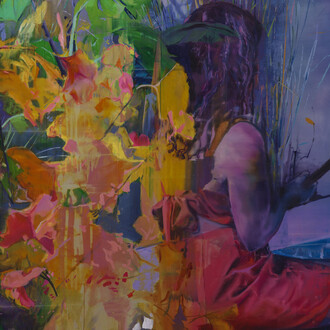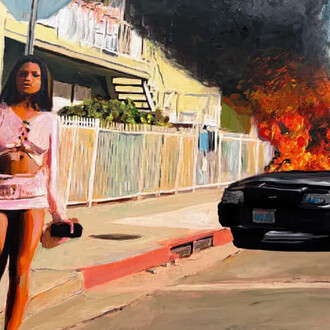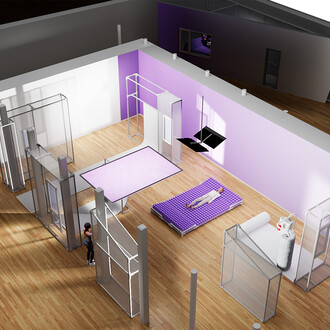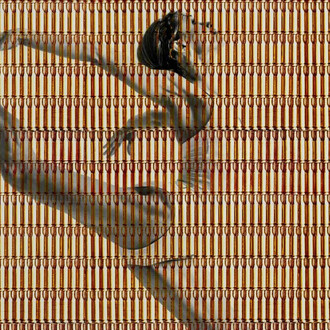DENK gallery is pleased to present its second solo exhibition of new photographic works by Los Angeles-based artist Augusta Wood. In The Shape of My Head, Wood investigates the experience of personal time as an excursive set of fluid impressions and residual lingerings, each moment of the present informed by the spectral simultaneity of the past. This living overlap is the source of Wood's nuanced commix of images, where tenses are flexible, and the cumulative superimposition of imagery displaces the linear dictates of chronological time.
Wood's process dramatizes this intuited and perceived dimension of time in its evocative conflation of past and present, projecting and superimposing photographs from multiple places and moments into a single compressed surface in real time. She uses slide projectors to cast a manifold of transparencies onto darkened studio walls, in what becomes a performative and transitory opening of multiple temporal windows in tandem, allowing the individual frames to interact dimensionally and produce unexpected aggregates. Often intervening in the image herself, Wood uses her own body and hands to enter the collage, blocking out areas of light physically. She photographs this solitary theater of shadows, arresting its most evocative compositions as they unfurl in the overlap and restructuring of her film.
In her past work, Wood has excavated similar themes of overlap, exploring the imperfect and personal abstraction of memory when reconstituted. In I have only what I remember (2010), she projected haunting family photos onto the then-vacant spaces of her grandparents 1955 modernist home in upstate New York; the series was published as a book in 2014. Her last solo project, Parting and Returning, exhibited with DENK, explored the edges of her daily life in constant communion with the shadowy revenants of past tenses. Wood captures her impressions of time as a lived and embodied extension of the self in The Shape of My Head. Beyond language and the discursive coherence of chronology, its passing emerges as the artful and powerfully unreliable architect of experience.
















